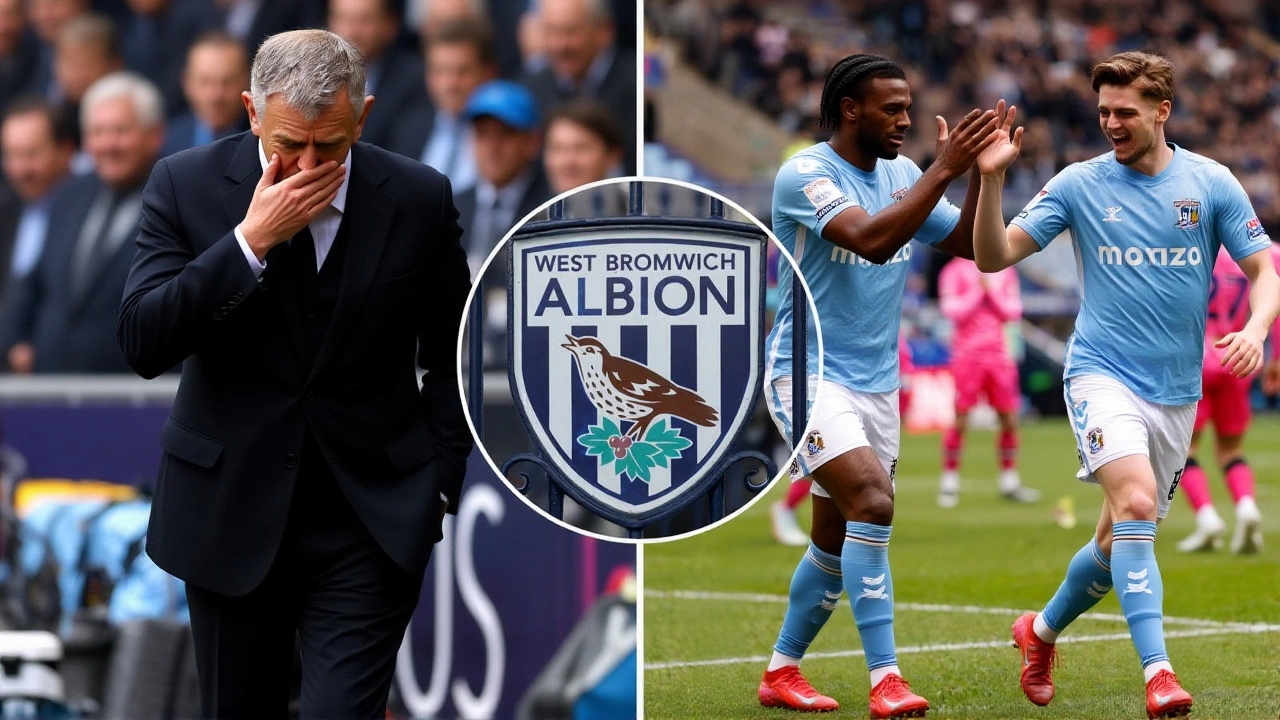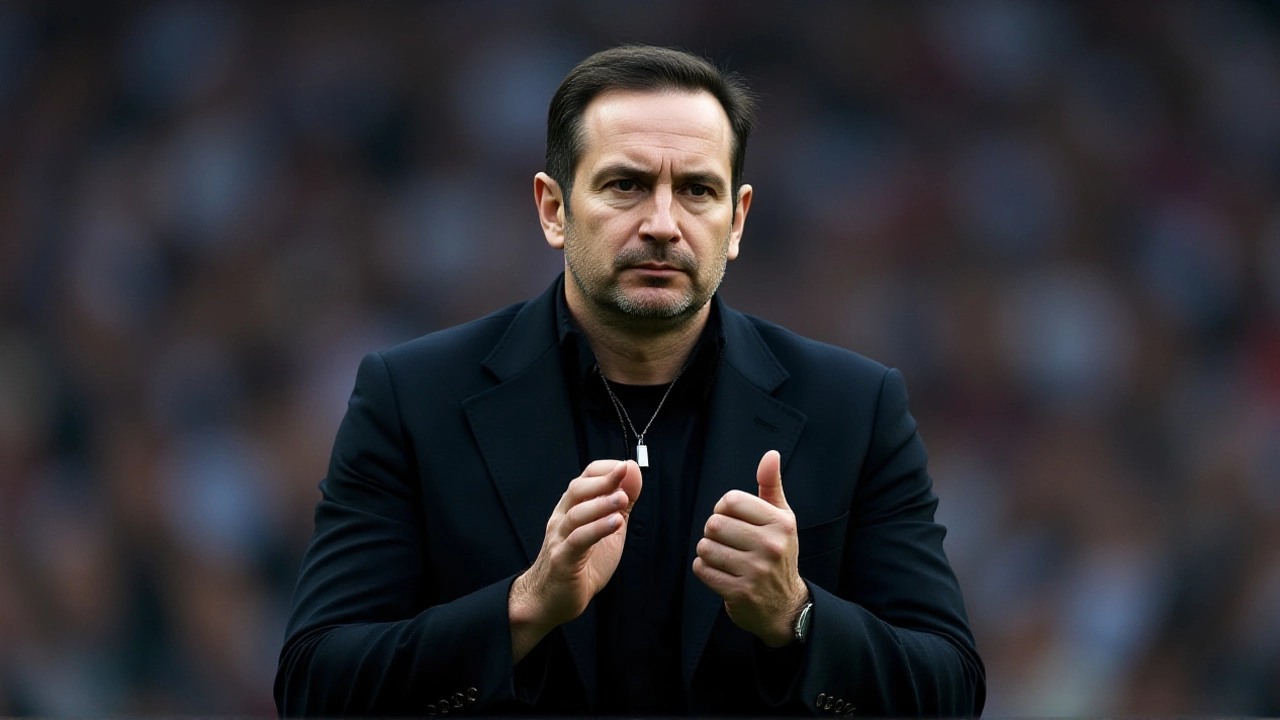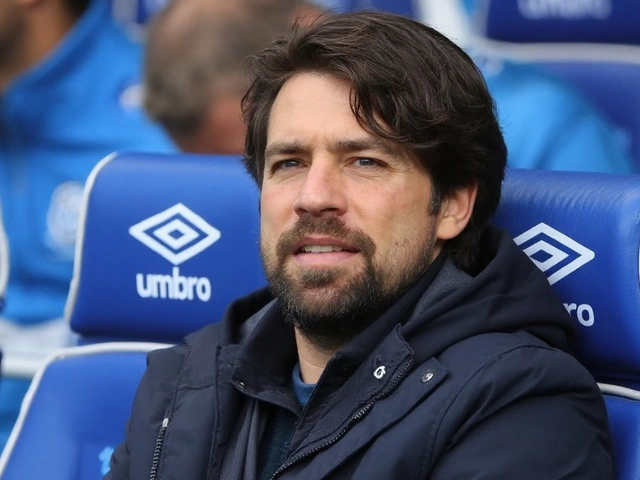
When Coventry City pulled off a 3-2 comeback win over West Bromwich Albion on November 22, 2025, at the Coventry Building Society Arena, it wasn’t just a win—it was a statement. Down 2-0 at halftime, with their season hanging by a thread and their rivals riding a four-match winning streak, the Sky Blues didn’t just claw back—they exploded. And it happened in the rain, under a gray Midlands sky, with fans holding their breath until the final whistle.
The Collapse That Shouldn’t Have Happened
West Bromwich Albion came into this match with swagger. They’d beaten Birmingham City, Blackburn, Watford, and Shepherd United in their last four away games. Their attack, though quiet all season—just 14 goals in 15 matches—had suddenly found rhythm. Ona Hegos, a player who’d scored only twice in the league before this season, opened the scoring in the 17th minute with a low, curling finish. By the 42nd minute, Carlan Grant had doubled the lead with a counterattack so crisp, it looked rehearsed. Five West Brom players were in the box on that play. The commentary didn’t just note it—it marveled. "He’s making it happen," one analyst said. "And Coventry? They’re asleep." The half-time score—1-2—felt like a death knell. Fans in the stands were silent. The rain dripped off umbrellas. Even the home team’s manager, Frank Lampard, looked grim. "They’ve got us pinned," a supporter told the BBC. "And we’re not even trying."The Turning Point: Malumbi’s Mistake
The game didn’t turn because of a brilliant goal. It turned because of a mistake. In the 78th minute, with West Brom clinging to their lead, Jason Malumbi—already on a yellow card—pulled back a charging Coventry winger in the box. No debate. No appeal. The referee didn’t hesitate. Red card. Ten men. The stadium exhaled. And then, it roared. "That’s the moment," said the EFL highlights commentator. "Not the goals. The red card. That’s when the tide flipped." Coventry didn’t wait. Three minutes later, substitute striker Mikey Johnson—whose name had been muttered in frustration all season—slipped between two defenders and buried a left-footed shot past the stranded keeper. 2-1. The arena shook. The rain seemed to stop for a second.The Comeback: Three Goals, No Fear
The second goal came just 82 seconds later. A long ball from midfield, a flick-on, and Johnson was through again. This time, he didn’t miss. 2-2. The noise was deafening. Fans were climbing seats. Some were crying. One man held up a sign: "Frank Lampard’s Magic." Then, in the 87th minute, the winner. A corner. A scramble. A deflection off a West Brom defender. The ball bounced off the post, then off the keeper’s gloves, and into the net. The official scorer was listed as an own goal, but everyone knew who made it happen: Coventry City’s relentless pressure. Three goals. No response. The final whistle blew at 90+3. 3-2.
Why This Matters More Than the Score
This wasn’t just about points. It was about belief. West Brom had been the team feared in the Midlands. They’d beaten Coventry in five of their last seven meetings. Their away record was the best in the Championship. And yet, in the space of ten minutes, it all collapsed. The irony? West Brom had scored more goals in this one match than they had in their previous five games combined. But it wasn’t enough. For Coventry City, this win lifted them into the top six. It was their first home win in seven matches. And for Frank Lampard? It was his most emotional victory since returning to management. "We weren’t playing well. But we never stopped believing," he said post-match. "That’s what champions do."What Comes Next?
Coventry now face a tough trip to Middlesbrough next weekend. But they’re riding a wave. Their next three matches are all against teams in the bottom half. This win could be the spark. For West Brom, the questions are louder. Can they recover without Malumbi? Can Hegos keep scoring? And why, after dominating for 75 minutes, did they collapse so completely? Their next match is against Leeds—a side that’s been lethal on the break. The pressure’s on.
The Bigger Picture
This match was a textbook example of why the EFL Championship is the most unpredictable league in English football. No team is safe. No lead is secure. West Brom had won their last four away games. Coventry had lost their last three at home. And yet, in the end, it was grit, not form, that decided it. The attendance? 28,712. The weather? Damp, cold, miserable. The result? Unforgettable.Frequently Asked Questions
How did Coventry City manage to come back from 2-0 down after being so poor in the first half?
The turning point was Jason Malumbi’s red card in the 78th minute, which left West Brom with ten men and exposed their defensive structure. Coventry capitalized on the space, pressing high and forcing errors. Their substitute striker, Mikey Johnson, who had only one league goal all season, scored twice in five minutes—his first multi-goal game in the Championship. The team’s morale, fueled by a vocal home crowd, turned desperation into momentum.
Why was West Bromwich Albion’s performance so surprising despite their recent form?
West Brom had won four straight away games and were scoring more than usual, but their season-long goal drought (just 14 goals in 15 matches) masked underlying fragility. Their attack relied heavily on counters and individual brilliance from players like Carlan Grant and Ona Hegos. Once Coventry tightened up after the red card, West Brom had no Plan B. Their midfield lacked creativity without Malumbi’s physical presence, and their defense panicked under sustained pressure.
What impact does this result have on Coventry City’s promotion chances?
The win lifted Coventry City into 6th place, just two points behind the playoff spots. With three of their next four games against bottom-half sides, this could be the catalyst they needed. Their home form had been dreadful—only one win in seven matches before this—but now they’ve won three of their last four at the CBS Arena. Frank Lampard’s side has shown they can grind out results when it matters most.
Who are the key players to watch after this match?
Mikey Johnson is suddenly a hero—his two goals were his first in the league since August. Ona Hegos, despite scoring, may face scrutiny for his lack of support in the final 20 minutes. For Coventry, midfield enforcer Tyrone O’Neill controlled the tempo after the red card and made 11 recoveries, the most of any player. And Frank Lampard’s tactical switch to a 4-2-3-1 in the 60th minute, bringing on Johnson, proved decisive.
Is this comeback one of the greatest in Coventry City’s history?
It ranks among the top five. The last time Coventry came back from 2-0 down to win at home was in 2018 against Sheffield Wednesday. But this was different: the opponent’s form, the stakes, the weather, and the emotional weight of breaking West Brom’s away dominance made it historic. Fans are already calling it "The Rainstorm Comeback." The club is considering a commemorative banner.
What did the red card mean for West Brom’s season?
Jason Malumbi’s suspension means West Brom loses their most physical midfielder for the next three matches. He’d started every game this season and was key in breaking up opposition attacks. With no reliable backup, manager Gary Rowett may have to reshuffle his entire midfield. That’s a problem against teams like Leeds and Preston who thrive on quick transitions. This defeat could haunt them long after the final whistle.





